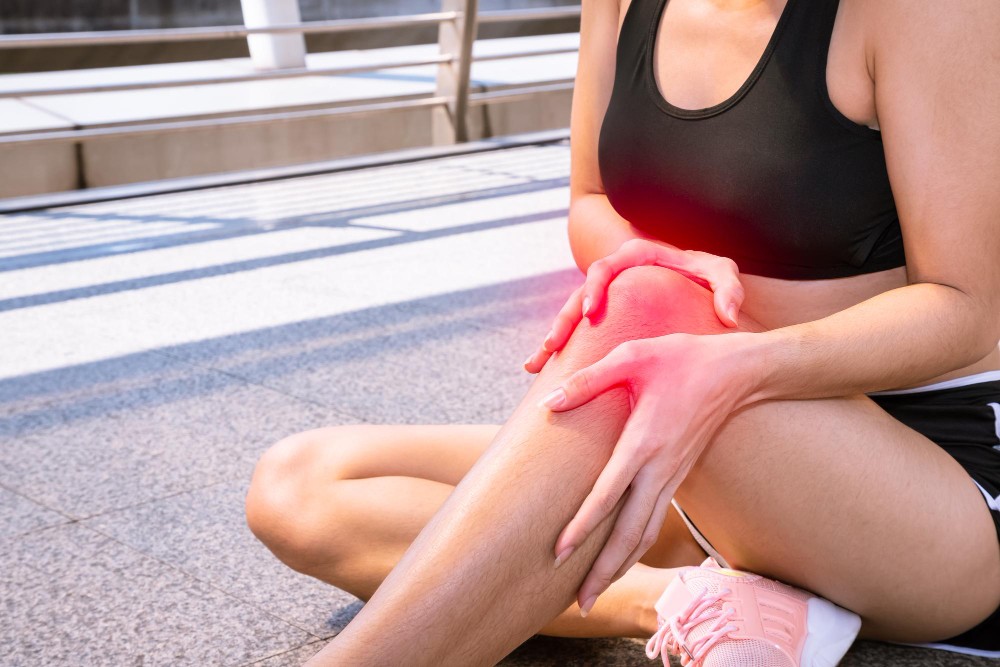Berjalan kaki merupakan aktivitas yang kita lakukan sehari-hari. Ketika Anda merasakan nyeri pinggul saat berjalan, tentunya hal ini akan mengganggu aktivitas Anda. Nyeri pinggul saat berjalan dapat mengindikasikan gangguan di tulang, persendian, hingga saraf. Simak artikel berikut untuk mengetahui penyebabnya dan kapan Anda perlu periksa ke dokter.
Penyebab Nyeri Pinggul saat Berjalan
Saat berjalan, bukan hanya otot kaki yang aktif bergerak tetapi juga tulang dan persendian di pinggul, tungkai kaki, dan telapak kaki. Ketika ada gangguan pada tulang, sendi, tendon, dan otot pinggul, hal ini dapat menyebabkan nyeri pinggul saat berjalan.
Kondisi ini umumnya dialami kelompok usia tua, namun hal ini juga dapat terjadi pada kelompok usia lebih muda. Nyeri pinggul yang muncul bervariasi, bisa terjadi di satu atau kedua pinggul.
Nyeri biasanya bersifat ringan dengan rasa kaku atau tidak nyaman lalu memburuk seiring waktu atau terjadi secara tiba-tiba dan menyakitkan. Ketika Anda merasakan nyeri, penting untuk mengetahui penyebabnya dan mendapatkan penanganan yang tepat.
Baca Juga: Jalan Kaki 30 Menit Apakah Cukup untuk Menjaga Kesehatan?
Beberapa penyebab nyeri pinggul saat berjalan antara lain:
Artritis
Artritis adalah peradangan yang terjadi pada salah satu atau beberapa persendian. Nyeri pinggul saat berjalan bisa disebabkan oleh beberapa jenis peradangan seperti:
- Juvenile idiopathic: Artritis yang paling umum pada anak-anak
- Osteoartritis: Peradangan akibat ausnya sendi
- Artritis reumatoid: Peradangan sendi akibat autoimun
- Ankylosing spondylitis: Peradangan yang menyerang tulang belakang
Cedera
Cedera pada pinggul dan area penghubungnya, seperti lutut, dapat merusak atau memicu peradangan pada tulang, ligamen, atau tendon sendi panggul yang menyebabkan nyeri saat berjalan.
Gangguan pada otot atau tendon
Masalah persendian seperti bursitis (peradangan bursa), terkilir, atau iritasi pada tendon yang menghubungkan otot pinggul ke tulang, serta robeknya soket cincin tulang rawan pinggul, akan menyebabkan Anda nyeri dan sulit berjalan.
Gangguan pada tulang
Gangguan pada tulang yang menyebabkan nyeri saat berjalan antara lain:
- Patah tulang
- Dislokasi (tulang pada sendi bergeser atau terlepas dari posisi normal)
- Osteoporosis
- Osteomielitis
- Kanker tulang
Kerusakan saraf
Beberapa kerusakan saraf yang menyebabkan nyeri saat berjalan antara lain:
- Saraf terjepit atau rusak di area pinggul
- Skiatika, yaitu iritasi di saraf skiatika yang ditandai dengan nyeri di punggung bawah yang menjalar di sepanjang kaki
- Sakroiliitis, yaitu peradangan di salah satu atau kedua sendi sakroiliaka yang menghubungkan tulang belakang dan panggul.
Baca Juga: Risiko Jalan Kaki Terlalu Banyak
Kapan Perlu Periksa ke Dokter?
Beberapa nyeri pinggul dapat menghilang setelah beberapa hari, namun jika nyeri pinggul berlangsung lebih dari beberapa hari, sebaiknya periksakan ke dokter. Anda juga perlu segera mendapat perawatan apabila mengalami gejala berikut:
- Nyeri diikuti perdarahan di pinggul
- Terdengar suara letupan di persendian
- Ada tulang atau otot yang terbuka
- Kaki tidak dapat menahan beban
- Pinggul bengkak dan berubah bentuk
- Nyeri tekan
- Rasa hangat
- Kemerahan
- Demam dan menggigil
Penanganan Nyeri Pinggul
Penanganan nyeri panggul disesuaikan dengan penyebabnya. Beberapa kasus nyeri dapat pulih dan sembuh dengan sendirinya tanpa pengobatan khusus. Pengobatan nyeri pinggul saat berjalan di antaranya adalah terapi fisik, minum obat-obatan, hingga operasi.
Terapi untuk nyeri pinggul antara lain:
- Terapi fisik
- Latihan kekuatan pinggul dan harmstring
- Olahraga low impact untuk memperkuat otot inti
Sedangkan untuk pengobatan, dokter dapat memberikan obat antiperadangan, pelemas otot, dan pereda nyeri. Selain itu, nyeri pinggul juga dapat diatasi menggunakan penanganan berikut:
- Pemberian kompres hangat atau dingin
- Menggunakan penyangga lutut atau sol sepatu khusus
- Menurunkan berat badan berlebih
- Menggunakan tongkat atau kruk
Untuk kasus yang lebih serius, dokter dapat merekomendasikan operasi pembedahan. Apabila Anda mengalami nyeri pinggul saat berjalan yang tidak kunjung pulih, sebaiknya periksakan ke dokter. Anda juga bisa memanfaatkan fitur konsultasi pada aplikasi Ai Care yang bisa diunduh melalui App Store dan Play Store.
Mau tahu informasi seputar penyakit lainya? Cek di sini, yah!
- dr Nadia Opmalina
Geng, C,. (2023). What to know about hip pain when walking. Available from: https://www.medicalnewstoday.com/articles/hip-pain-when-walking#
Iftikhar, N. (2019). What Causes Hip Pain When Walking?. Available from: https://www.healthline.com/health/hip-pain-when-walking
Barhum, L. (2024). Causes of Hip Pain When Walking and Treatment Options. Available from: https://www.verywellhealth.com/hip-pain-when-walking-8689980
NHS. Hip Pain in Adults. Available from: https://www.nhs.uk/conditions/hip-pain/












